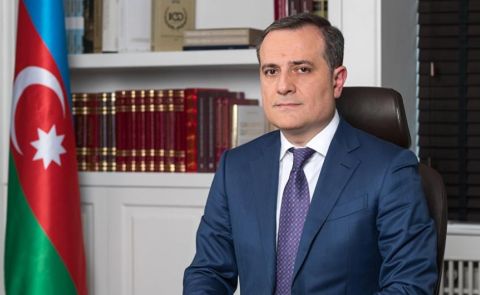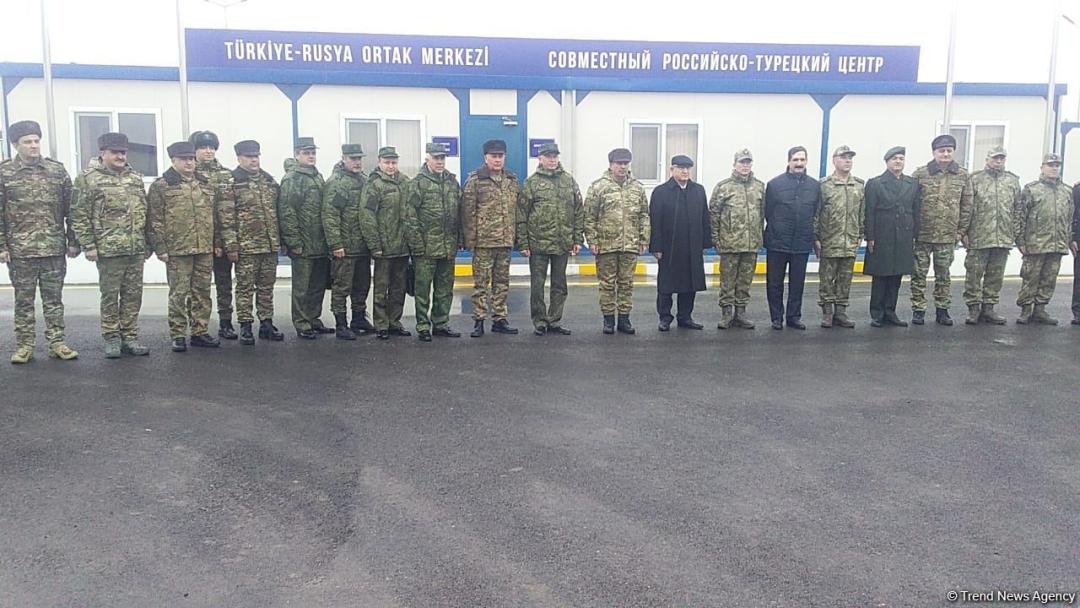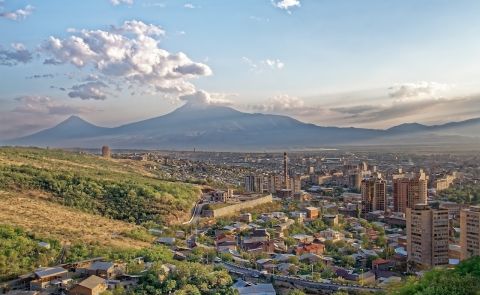
Nagorno-Karabakh: first meeting of the trilateral working group; Azerbaijan sends note of protest to EU over POW exchange statement

On 30 January, the trilateral meeting of the deputy Prime Ministers of Armenia (Mher Grigoryan), Azerbaijan (Shahin Mustafayev) and Russia (Aleksey Overchuk) took place in Moscow to discuss the practical modalities of the reopening of transport links in Nagorno-Karabakh.
According to a statement on the Russian government's website, the trilateral working group discussed the main directions of work stemming from point 9 of the trilateral statement from 10 November, which foresees the unblocking of all economic and transport links in the region as well as points 2, 3, 4 of the joint statement of 11 January 2021.
The parties agreed to create the following expert subgroups: for rail, road and combined transport; for ensuring transportation, including security, border, customs, sanitary, veterinary, phytosanitary and other types of control. They also agreed to complete the formation of expert subgroups by 2 February 2021 and hold their first meetings by 5 February 2021. It was decided that the next meeting of the trilateral working group will be held in Moscow.
Parallel to the trilateral meeting of the working group, the joint Turkish-Russian monitoring centre in Aghdam, which would control the ceasefire in the Nagorno-Karabakh conflict zone, was officially opened. The opening ceremony was attended by Azerbaijan’s Defence Minister Zakir Hasanov, Turkey’s Deputy National Defence Minister Yunus Emre Karaosmanoglu and Russia’s Deputy Defence Minister Alexander Fomin. The Azerbaijani Defence Ministry reported that the total area of the monitoring centre is about four hectares. On the territory, there are 65 modular office premises and living quarters, which are provided with all the necessary equipment. The centre has a briefing room, a canteen with 100 seats, a first-aid post, an atelier and a shop. The centre’s territory is fenced around the perimeter; it includes four watchtowers and round-the-clock security. The protection of the Turkish-Russian joint monitoring centre will be carried out by the Azerbaijani army. The Russian personnel of the centre will be led by Major General Viktor Fedorenko and the Turkish personnel by Major General Abdullah Gatırcı.
On the side lines of the opening ceremony, Zakir Hasanov had separate meetings with the Turkish and Russian deputy defence ministers. At the meeting with Fomin, the sides focused on international and regional security, the current state of military and technical cooperation and prospects of developing ties and other issues of mutual interest. At the meeting with Karaosmanoglu, the parties noted that military cooperation serves the interests of both countries. They stressed the need to increase efforts in this direction, especially in the field of military-technical cooperation and joint exercises. It was noted that the military exercises between Azerbaijan and Turkey, along with increasing the professionalism of the military personnel of both countries, serve to maintain peace, security and stability in the region. The two men also exchanged views over issues of regional and bilateral cooperation.
This was not the only meeting of high-ranking security officials in the South Caucasus, as the deputy chief of the Russian military’s General Staff Colonel-General Sergey Istrakov met with Armenia’s Defence Minister Vagharshak Harutunyan on 25 January. The Armenian Defence Ministry described as “staff negotiations” between the armed forces of the two countries. The statement of Armenia's MOD said Istrakov met with Harutunyan to brief him on the results of the talks that touched upon “all directions of Russian-Armenian bilateral military cooperation.” They discussed joint activities planned by the two sides, the statement further said without specifically elaborating. On 1 February, Harutunyan phoned his Russian counterpart Sergey Shoygu to discuss the results of the Armenian-Russian headquarter negotiations over military cooperation, as well as the process of solving Armenia’s security issues in the post-war period.
On the diplomatic side of developments, the Azerbaijani Foreign Ministry reacted to the statement of the European External Action Service Spokesman Peter Stano in regard to the release of 5 Armenian prisoners of war on 29 January. “We would like to emphasise that any statement has not been issued, any attitude has not been demonstrated by the EU until today on Armenia's targeting Azerbaijan's civilian people by using Smerch missile during the latest military operations, killing of more than 100 civilians, as well as missing of more than 4,000 people in total during the first Karabakh War. We would like to remind the EU side that 62 people, who were purposefully deployed in Azerbaijan's territories, liberated from occupation, are not military hostages. They are Armenian military servicemen, who were sent to Azerbaijani territories nearly 20 days after the war and are not military hostages according to either humanitarian law, or any convention,” stated the spokesperson of Azerbaijan’s MFA Leyla Abdullayeva.
“EU Official's speaking with Azerbaijan in this style is unacceptable. Azerbaijan just accepts relations with equal rights. Those, who attempt to speak with Azerbaijan in this way, will face an adequate response. We would like to note that this unilateral approach, based on biased standards, can damage EU relations with Azerbaijan,” she further stressed. To note, Stano wrote on his Twitter account that the EU welcomed the release of the five Armenian servicemen and called on Azerbaijan to release the remaining 57 persons who are classified as POW’s.
The Chairman of the Russia’s Security Council, the country’s former President and Prime Minister Dmitry Medvedev spoke on the issue of resolving the situation in Nagorno-Karabakh and the status of the region. According to him, Moscow and Ankara have built an effective dialogue regarding the issue and the presidents of the two countries (Vladimir Putin and Recep Tayyip Erdogan) are constantly communicating on this issue. Commenting on Turkey’s role in the Nagorno-Karabakh conflict, Medvedev noted that Ankara is a very important partner of Russia and is very close to Azerbaijan, which is a “factor [that] cannot be ignored.”
While speaking during the opening of the joint monitoring centre in Aghdam, Medvedev emphasised that it is “one more element of general stabilization” in the region. “But I would refrain from treating it as an element of some long-term policy or build a conspiracy theory here. We were simply obliged to take the realities in our region into account. And the reality is that this issue must be discussed with the Turkish partners,” he added.
Another person who addressed the issue of cooperation of external powers in Nagorno-Karabakh was the US ambassador to Russia John Sullivan, who said that the Karabakh issue is one of the fields of cooperation between the US and Russia. He named as an example the participation of the US and French embassies in a briefing in the Ministry of Foreign Affairs of Russia a while ago. “The US, France, and Russia are co-chairs of the Minsk Group. We were informed of the occurrences in Nagorno-Karabakh and the cessation of hostilities between Azerbaijan and Armenia at the briefing. It is an example of the cooperation sphere of the US with the Russian government. In the current situation, we want to continue our cooperation with the French government regarding this issue as a Minsk Group co-chair,” he stressed.
See Also


Nordic-Baltic Delegation Meets Armenian Leaders to Discuss Regional Cooperation and Peace

Azerbaijan Strengthens Energy Partnerships with Multiple Countries

BP Strengthens Presence in Azerbaijan’s Offshore Energy Sector

Netanyahu’s Letter to Aliyev: Mutual Trust, Solidarity Following Hamas Attacks, Facilitating Dialogue Between Israel and Türkiye

